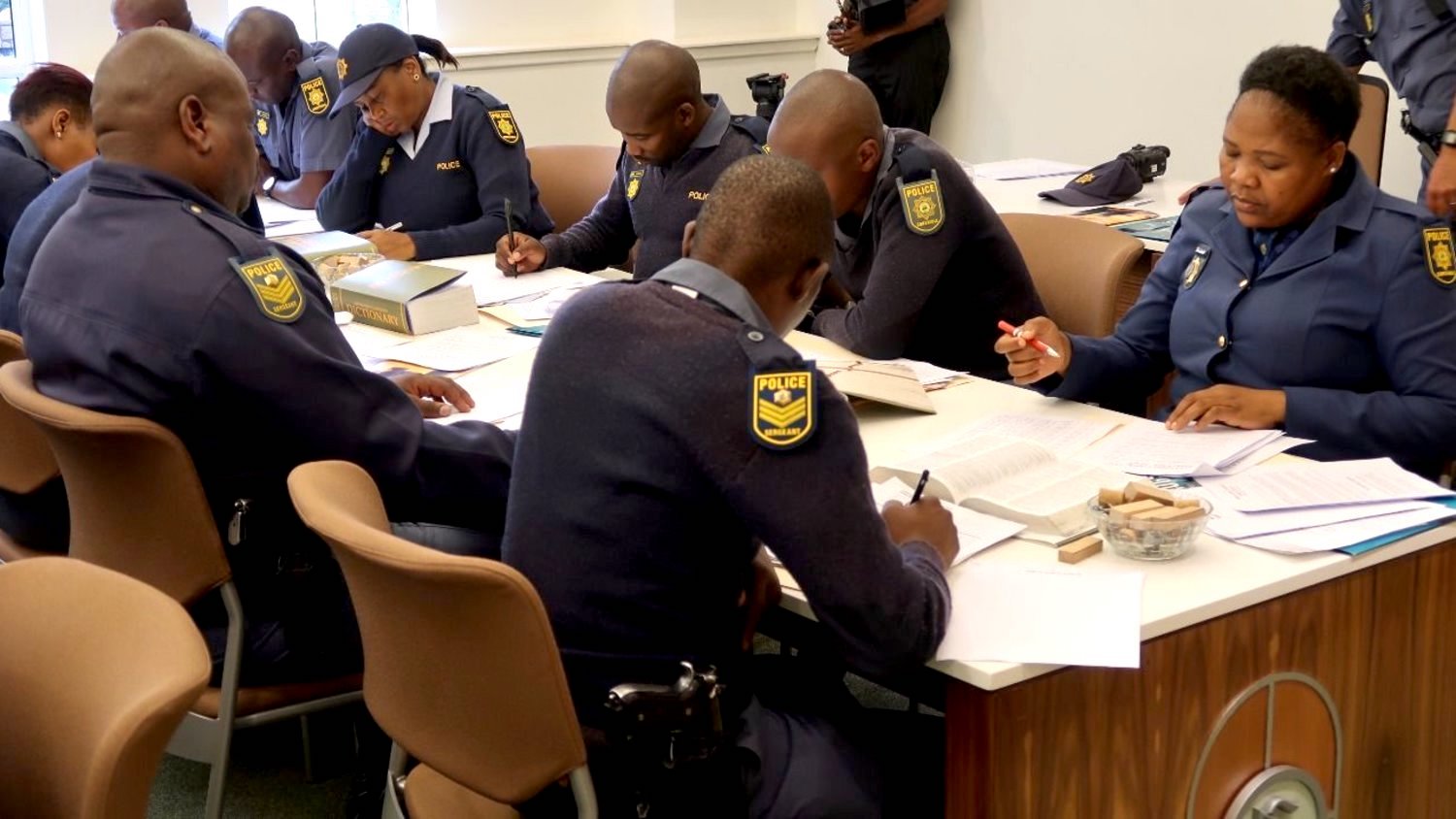Four months into the rollout of the Crime Prevention Wardens in South Africa’s Gauteng province, media reports suggest they may be doing more harm than good. At a time of government budget cuts, the programme must justify its 2023/24 allocation of nearly R1.5-billion. But demonstrating the effectiveness of policing actions is difficult. Evidence-based policing (EBP) aims to address this.
EBP requires a proven link between an activity and its intended outcomes. It combines common sense, experience and professional judgement with data, research and analysis to evaluate impact. While pockets of policing in South Africa have started using evidence-based practice, the concept remains largely misunderstood, restricting effective policing.
One misunderstanding is that EBP is just another policing model or passing fad. In fact, it isn’t a model or strategy at all but a method for evaluating and optimising a policing approach. It doesn’t replace models such as community policing, sector policing or zero-tolerance policing. But it can help law enforcement agencies anywhere in the world identify which strategy best fits a particular situation, and help implement and improve that strategy.
EBP’s strength lies in its universality. It provides decision-makers with the most reliable, transparent, unbiased information about what works. Its core principle is old and simple — the scientific method of forming hypotheses, making observations and using documented reasoning to analyse results and reach conclusions. EBP simply applies these logical steps to law enforcement. It elevates policing beyond the realm of intuition or tradition, making it an enduring, evolving practice rather than a passing trend.
A second misunderstanding is that EBP is merely data-led policing. In South Africa, data-led policing involves crime pattern and crime threat analyses, using information from ‘crime incident records, crime scene investigation evidence, case dockets and offender analysis,’ to guide operations and tactics.
EBP needs this same information, but the crucial difference is that it uses the data and other sources to conduct systematic causal analyses. Data can tell us that patrols in a neighbourhood are increasing and the murder rate is decreasing, but only EBP can reveal whether and how the two are connected, and what to do about it.
An example of an EBP approach is to divide an area into two zones, each with different levels of police patrols. After a set period, burglary rates from both areas are compared. If the zone with increased patrols shows a significant reduction compared to the other, a causal link between more patrols and less crime could be established.
The third misunderstanding is that EBP is the same as intelligence-led policing. This approach incorporates a wider range of information than data-led policing (including human intelligence and contextual data) to identify dynamics and priorities that guide proactive decisions for longer-term impact.
Evidence-based policing advantages
EBP tools differ in several ways. They help inform decisions with an eye on critically evaluating and improving the effectiveness of those decisions over time. They focus not just on the present and future, but on learning from the past by examining what did and didn’t work. EBP also avoids drawing conclusions from subjective judgements. Instead, it prioritises objective data, clearly defined criteria and rigorous research methods. EBP complements intelligence-led policing.
A fourth misunderstanding is that EBP requires all police to have a tertiary qualification. The method draws on rigorous knowledge and reasoning, and analytical and research skills are crucial, especially when testing something new. But police officers don’t need degrees in statistics. EBP requires only that science have a ‘seat at the table’ of law enforcement practice. A core team skilled in EBP principles and with sufficient institutional power can guide decision-making.
Equally important is growing a culture of evidence-based decision making in policing. This can be incorporated into performance monitoring and institutional structures. Strong leadership is vital to build an organisational culture open to experimentation and potential failure, and willing to adapt policy based on evidence.
A fifth misunderstanding is that police have more urgent priorities. Given the multiple challenges facing South African policing, perhaps embedding EBP just adds complications. However, the method is needed precisely because resources are limited and the stakes are so high. Using EBP, police can identify and implement the best practices for improving public safety while doing the least harm to the community and wasting few resources.
Satisfaction with policing in South Africa is low, making this the right time to try something different. Evidence-based policing isn’t an alternative to existing approaches but a versatile framework to enhance their effectiveness. It is not a competitor, but an enabler.
EBP could establish whether initiatives like the Crime Prevention Wardens are worth the investment. Using data, analysis and research, EBP can help police work more effectively and efficiently, making it vital to shaping the future of South Africa’s policing. DM
Dr Anine Kriegler, Senior Researcher, Justice and Crime Prevention, Institute for Security Studies (ISS) Pretoria.
Research for this article was funded by the Hanns Seidel Foundation and Bavarian State Chancellery.
First published by ISS Today.




